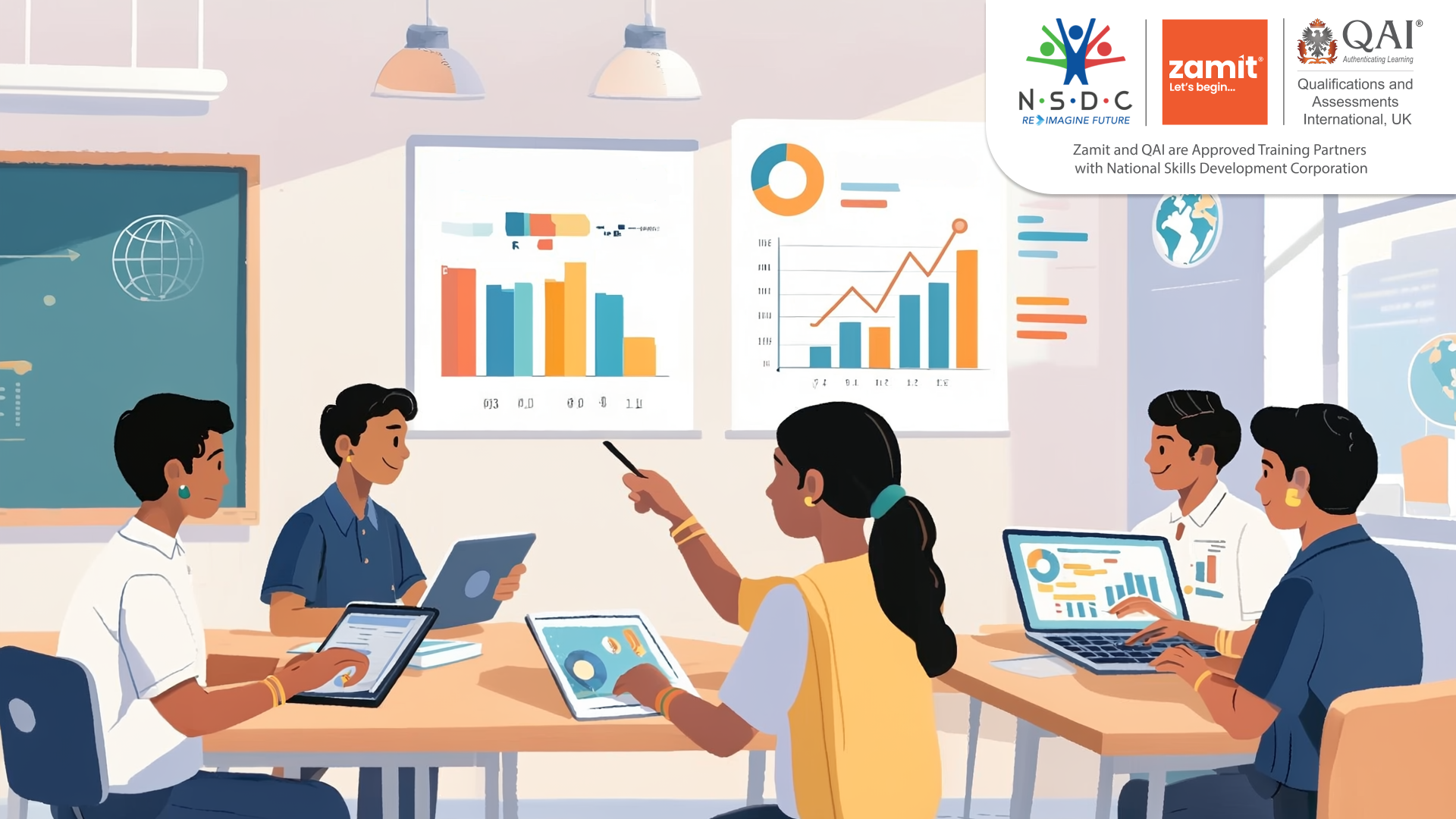
June 30, 2025
“Without data, you’re just another person with an opinion.” – W. Edwards Deming
Education must be more than just the transfer of knowledge—it must be a powerful catalyst for career readiness and lifelong success. Benchmarking in education plays a pivotal role in ensuring that students, schools, and systems are on track to meet the challenges of the 21st century. By setting measurable goals and comparing progress against global standards, benchmarking enables a clearer understanding of what constitutes meaningful student development and academic achievement.
The World Economic Forum consistently highlights the mismatch between what schools teach and the skills employers require. The job market is rapidly transforming, driven by automation, artificial intelligence, and the digitisation of industries. Students can no longer rely solely on subject mastery; they must develop skills for success like critical thinking, adaptability, collaboration, and creativity. Benchmarking helps identify these gaps and drive educational transformation by aligning learning outcomes with real-world demands.
Benchmarking also fosters adaptive learning, helping institutions personalise education to student needs. By using international frameworks like the Common International Framework of Reference (CIFR), educators can assess student competencies across a range of skills and track progress through a structured, evidence-based model. This process supports the move away from a one-size-fits-all approach and embraces a more inclusive, differentiated educational environment.
A powerful example of benchmarking in action is Zamit’s ZQ Benchmarking Programme, which measures student preparedness for the future through its proprietary Zamit Quotient. Available on zamit.one, this framework assesses students across nine future readiness parameters, linked closely to skills identified by the Economic Forum as essential for the jobs of tomorrow. These include emotional resilience, digital literacy, communication, leadership, and problem-solving—capabilities that go beyond the classroom and extend into all areas of life and work.
Effective benchmarking doesn’t just track student learning—it informs teacher development, curriculum design, and school leadership. Schools that regularly benchmark themselves against global standards can identify areas of excellence and improvement, create data-driven strategies, and set clear goals for educational transformation. This encourages accountability and transparency, both of which are essential for systemic improvement.
The global economy is increasingly interconnected, and so must be our approach to education. Countries that succeed in education reform often reference international benchmarks such as PISA, TIMSS, and CIFR. These tools allow policymakers to understand how their students perform in a global context and implement reforms accordingly. But benchmarking is not just for governments—it empowers schools and educators to take ownership of their own student development and drive continuous improvement.
Moreover, benchmarking plays a critical role in building career readiness. Students equipped with benchmarked skills can demonstrate their competence and confidence in real-world scenarios. This becomes crucial as employers place growing emphasis on soft skills, adaptability, and independent learning—qualities best developed through a well-benchmarked and future-focused curriculum.
Through platforms like Zamit, schools can embed adaptive learning and benchmarking into their everyday teaching. Tools such as continuous assessment, skill-based reporting, and AI-driven feedback make it possible to personalise learning journeys and respond dynamically to student progress. This leads to better engagement, motivation, and outcomes, particularly for students who may fall outside traditional academic norms.
Importantly, benchmarking encourages equity in education. By providing objective measures, it highlights disparities in learning and access, pushing for interventions where they are needed most. This ensures that all learners—not just high achievers—have the opportunity to build the skills for success and become contributors to the global workforce.
As the future of work continues to change, education systems must be agile and responsive. Benchmarking is not a luxury—it is a necessity. It provides the insights and tools needed to nurture students who are curious, capable, and ready to thrive in an unpredictable world. It is through this lens that benchmarking in education emerges as a cornerstone of future readiness and long-term prosperity.

Q1: What is benchmarking in education?
A: Benchmarking in education refers to the process of comparing student performance, school practices, or curriculum standards to established national or international norms to drive improvement and innovation.
Q2: Why is benchmarking important for student development?
A: It helps track progress, identify learning gaps, and personalise instruction to ensure each student is developing the necessary academic and life skills for long-term success.
Q3: How does Zamit support benchmarking?
A: Zamit offers tools like the Zamit Quotient a standardised benchmarking programme, to assess student readiness for the future, aligning with global frameworks (CIFR) and the needs of a changing job market.
Q4: What is CIFR and how does it relate to benchmarking?
A: The Common International Framework of Reference (CIFR) is a global standard used to assess competencies in areas such as digital literacy, analytical abilities, and communication skills, making it ideal for structured benchmarking.
Q5: How does benchmarking improve career readiness?
A: By aligning education with industry standards and skill requirements, benchmarking ensures students are prepared to meet workplace expectations and succeed in diverse careers.
Q6: Can benchmarking help with adaptive learning?
A: Yes, benchmarking identifies individual strengths and weaknesses, enabling tailored learning experiences that adapt to each student’s pace, needs, and goals.
Q7: Is benchmarking only for high-performing schools?
A: No. Benchmarking is a valuable tool for all schools, helping improve learning outcomes, promote equity, and guide targeted intervention regardless of the starting point.